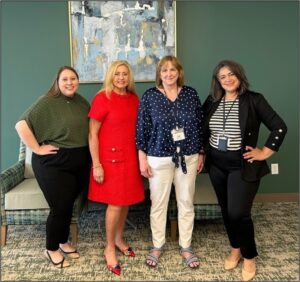Understanding the Signs of Burnout for Caregivers
Why It Is Essential to Prioritize Your Own Needs
Many adults find themselves in a position of providing care for a loved one. Perhaps a parent moved in with you following a debilitating injury, or a loved one who lives nearby needs daily assistance with basic tasks. No matter the unique arrangement you are in, the demands of caregiving can be intense both physically and emotionally.
You may feel alone in your situation, but the reality is that many individuals are taking on the responsibilities of caregiving. In June 2020, a study by AARP found that 1 in 5 Americans serve as unpaid caregivers to a loved one—that is a total of 53 million caregivers nationwide.
Just as nursing and health care professionals are prone to burnout due to psychological and physical stress so are unpaid caregivers and family members. After all, in most cases, caregiving is not your full-time job, and you are not a trained medical professional. You are balancing caregiving with your work and family responsibilities, as well as trying to find time to care for yourself. This is a difficult road to walk and can often leave you feeling emotionally and physically exhausted, stressed, and frustrated—all common signs of burnout.
Not only is burnout harmful to your personal health, but it can leave you more vulnerable to making a mistake that could harm your loved one, such as mixing medications or forgetting a dose. This is why it is so important to take steps to avoid burnout and prioritize your own health and well-being.
- Give yourself permission to take a break. Is there a trusted friend or family member who could provide care in your place for a day or an afternoon? Sometimes we are afraid to ask for help, but you should not hesitate to reach out to have someone lighten your load. You deserve to take a break.
- Find time for yourself. We suggest putting these slots of time on your calendar, so they are not overlooked. Set an alarm 30 minutes earlier, so you can take a walk before breakfast or sit and enjoy your coffee. Plan one evening a week when you can simply relax and recharge. Even just 15 or 20 minutes to yourself is valuable.
- Prioritize your sleep and exercise. Do not sacrifice the time you need to get adequate sleep and exercise. If you are not your best, you cannot serve your loved one’s needs. Investing time and energy in self care is not selfish; it will make you a better caregiver.
- Look for available support programs. Have you considered that you do not have to do it on your own? Programs like McGregor PACE, a Program of All-Inclusive Care for the Elderly, are designed to relieve the burden of caregivers like you and allow your loved one to continue to age in place while receiving the care and support he or she needs. According to the National PACE Association, there are currently 272 PACE centers in 31 states across the country.
If your loved one resides in Cuyahoga County, we invite you to reach out to our team to learn more about the PACE program, eligibility qualifications, and the enrollment process.


